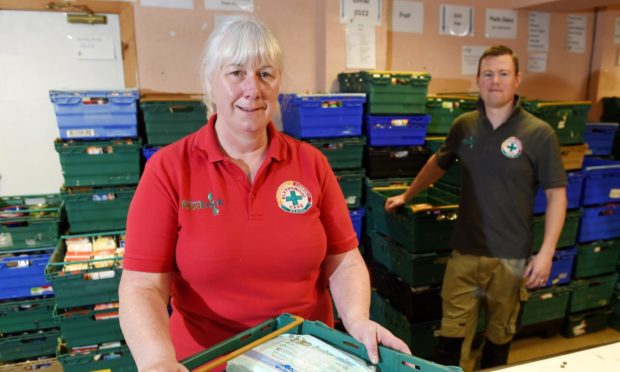Operators of a north foodbank are braced for a spike in referrals when the government furlough scheme comes to an end.
Highland Foodbank, operated by Christian charity Blythswood, is preparing to celebrate its 15th year next month but has said it expects more people to need its services once state aid to retain jobs ends.
The furlough scheme was implemented to help those unable to do their jobs during the pandemic in a bid to prevent mass redundancies.
However, it is due to cease at the end of October.
Under the Coronavirus Jobs Retention Scheme, workers placed on leave have been able to receive 80% of their pay, up to a maximum of £2,500 a month, with almost 10 million workers across the UK having their wages paid by the government.
In a bid to protect jobs, the government has offered to pay businesses a bonus of £1,000 for every furloughed employee who is kept on until the end of January 2021. However, these employees must be paid an average of at least £520 a month from November through to January.
Despite the best efforts of the government to retain jobs, a spike is still being prepared for.
Highland Foodbank manager Lorna Dempster said: “It is all a huge unknown. There is still a five-week wait on benefits being processed so somebody who comes to the end of furlough and has to apply for support is still going to have to wait that time.
“We do anticipate that we may see a spike in referrals for people during that time but we are quite prepared for that just now.
“A huge part of what foodbank does is signposting but we have sadly lost being able to have that chat with people because of the pandemic.
“The whole point of foodbank is not about food. In the long term, it is more about helping people to become independent and not needing to use food banks.”
The foodbank began in October 2005 and has grown to feed thousands over that time.
At the end of 2019, the charity had fed 62,000 over its lifespan with figures for 2020 estimated to break the 70,000 mark.
Mrs Dempster added: “Poverty as we know it is not what you see in third world countries.
“Poverty in the UK is about not having enough to live on, not having enough money to buy food or to put clothes on your back, a roof over your head.
“The whole concept is to make it a community project.
“It could be your neighbour or it could be a member of your family so it is all about making everybody aware that the foodbank exists, it is needed and it could be somebody in your street who needs to use it.
“Each year brings different challenges and there are different things that go on but we just take it and get on with it.
“We do what we can to make a difference to people.”
